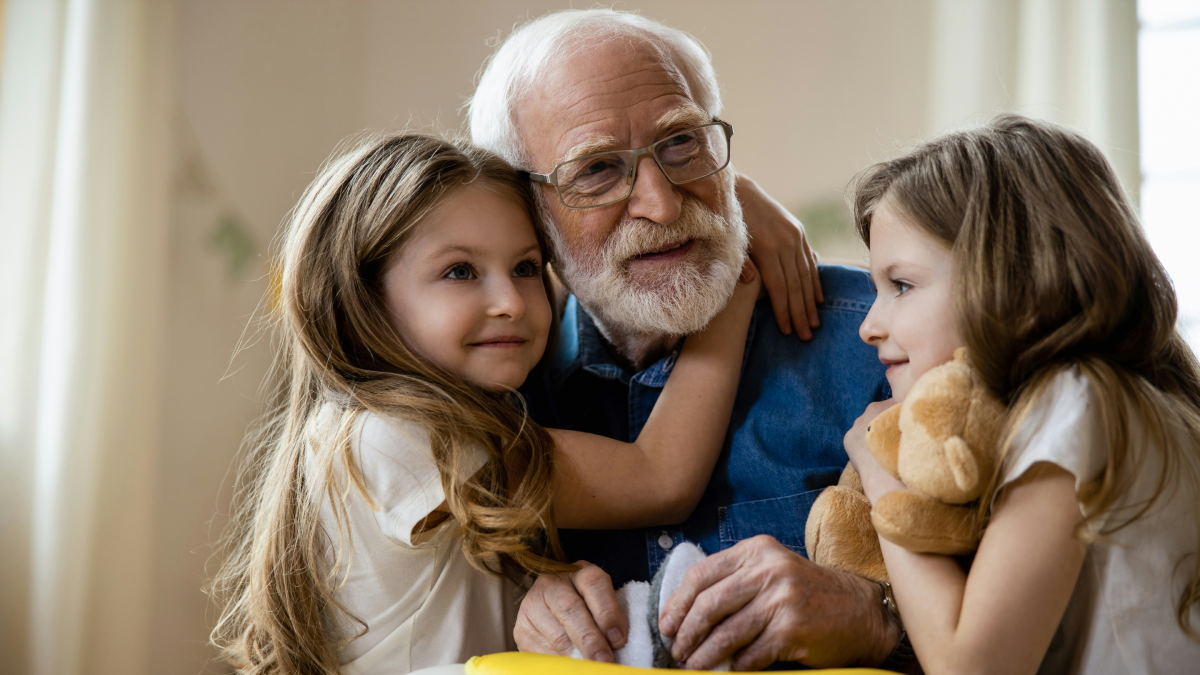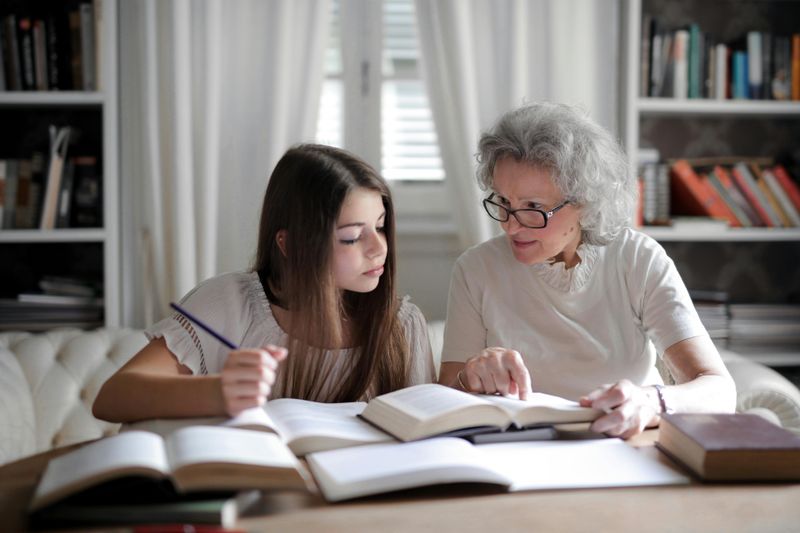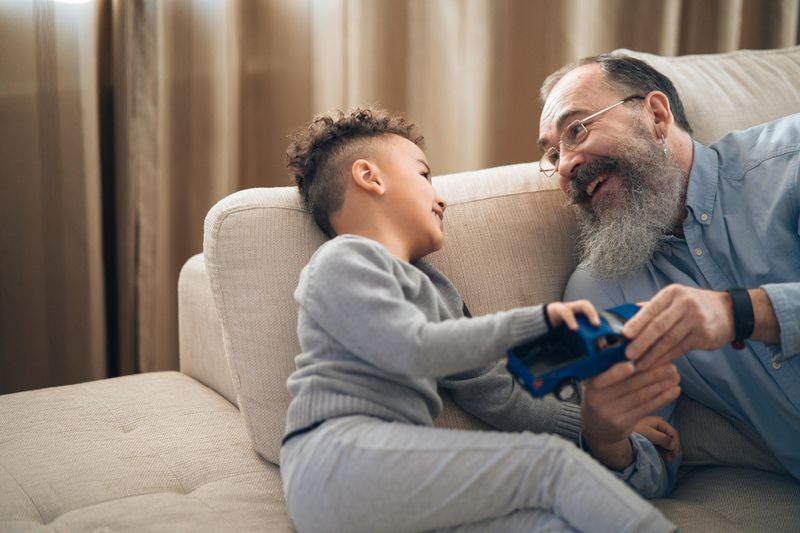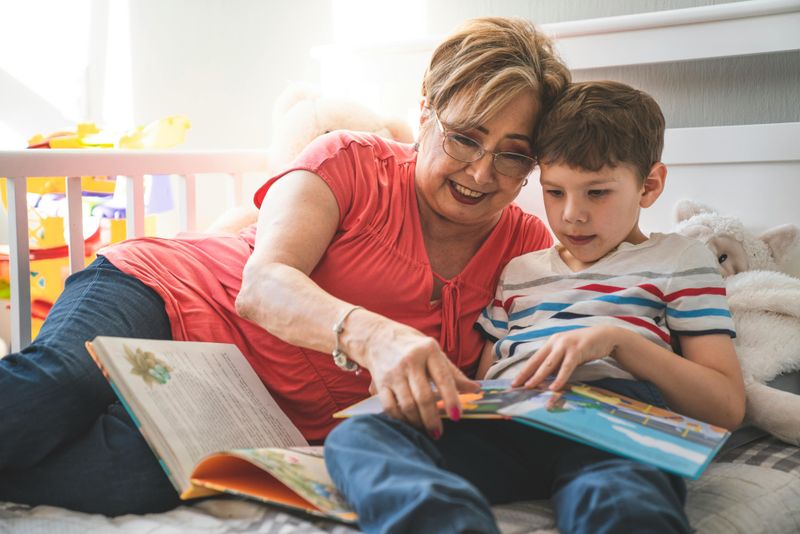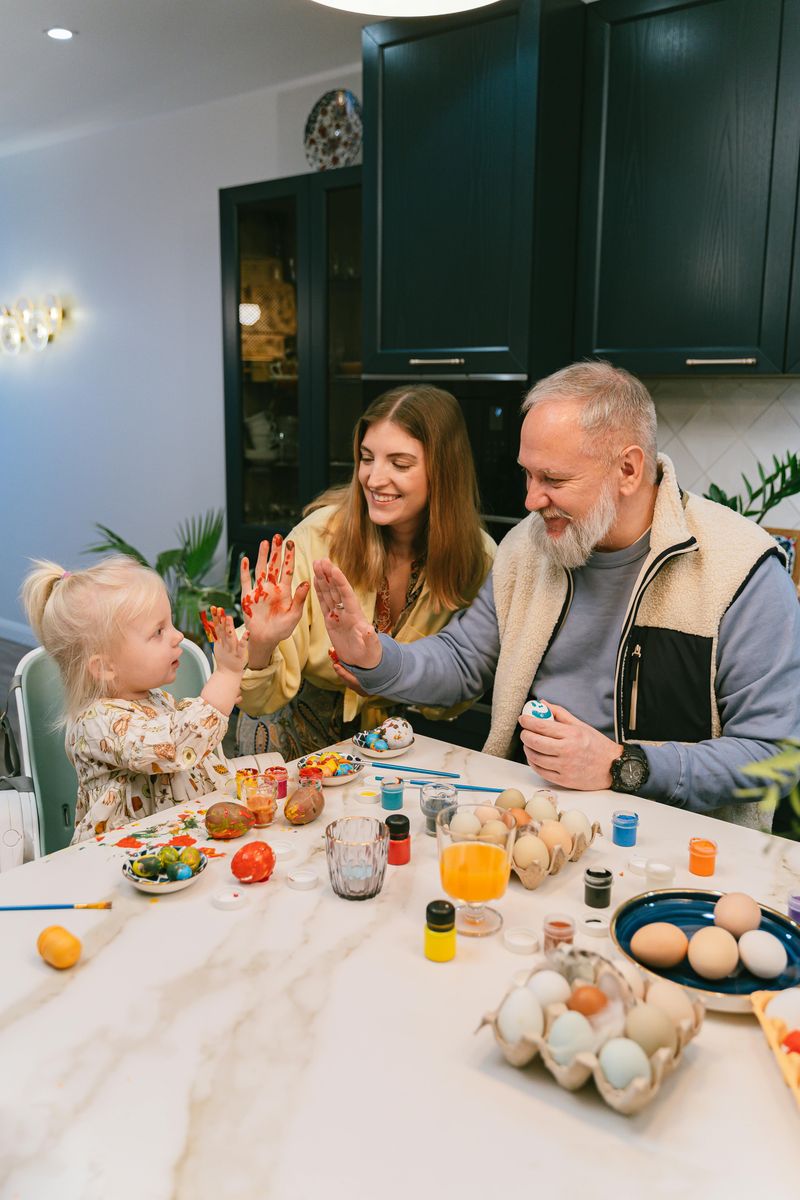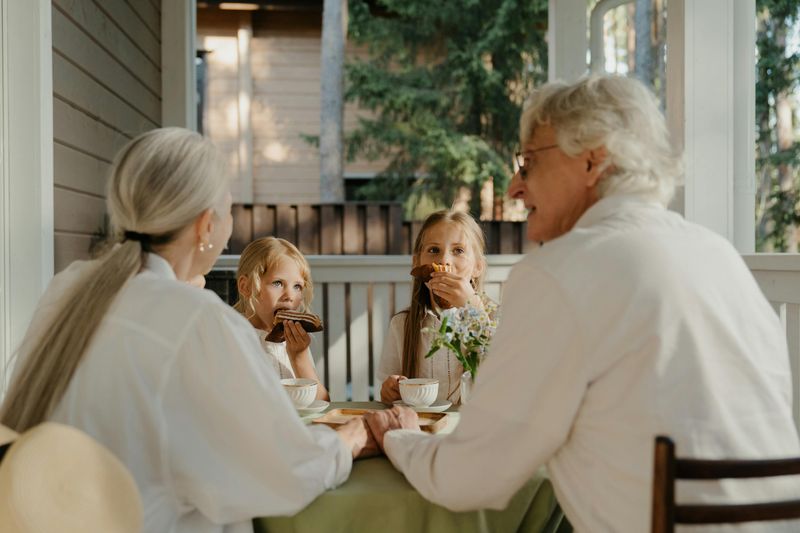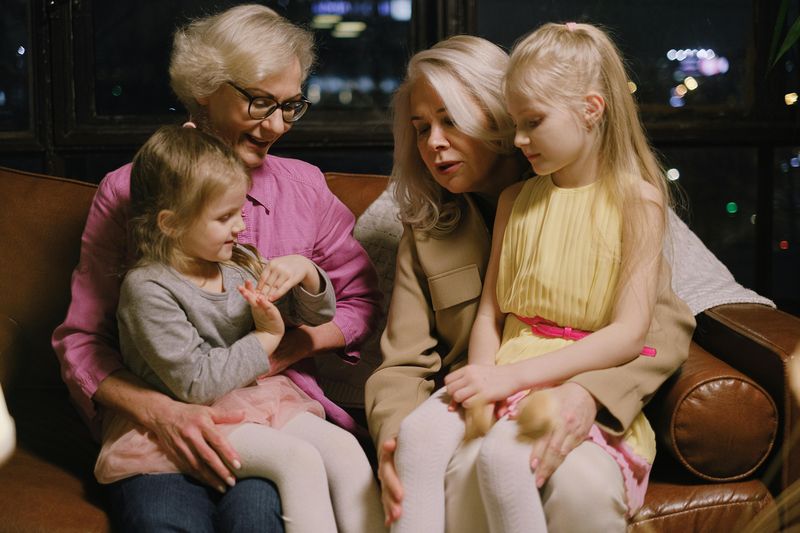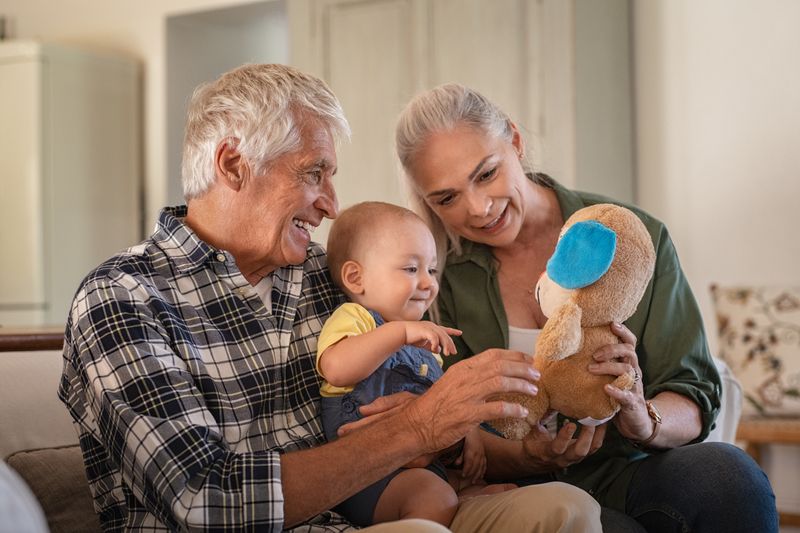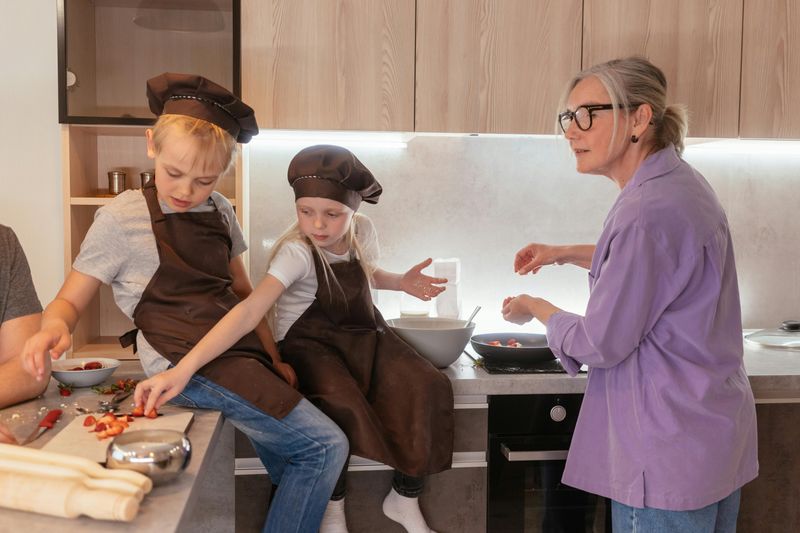Grandparents have a special way of sharing wisdom that sticks with us throughout our lives. Those familiar phrases they repeat might have made us roll our eyes as kids, but as we grow older, we recognize the truth behind their words. These timeless expressions carry generations of experience, practical advice, and love – proving that grandparent wisdom truly never goes out of style.
1. Back in my day…
Every grandparent story session seems to begin with these four magical words. What follows is usually a colorful comparison between modern conveniences and the uphill-both-ways challenges of yesteryear.
Grandparents use this phrase to create perspective, not just to reminisce. They’re teaching us to appreciate what we have while honoring the path that got us here.
2. Money doesn’t grow on trees.
Countless children have gazed hopefully out windows after hearing this expression, secretly wishing grandma was wrong just this once. The financial wisdom packed into these five words has guided generations through economic ups and downs.
Grandparents deliver this line when teaching the value of saving, the importance of work, and the difference between wants and needs. The visual metaphor sticks with children far better than complex explanations about budgeting.
Many adults find themselves unconsciously repeating this phrase to their own children, proving its timeless relevance.
3. A little hard work never hurt anyone.
Behind this expression lies generations of experience with manual labor, perseverance through difficult times, and the satisfaction of earning one’s way. Grandparents use it not to dismiss complaints but to encourage resilience.
Research confirms what grandparents already knew – developing a strong work ethic early in life correlates with success later. This timeless phrase helps children understand that temporary discomfort often leads to long-term rewards and personal growth.
4. Don’t count your chickens before they hatch.
Farming wisdom turned life philosophy, this expression surfaces whenever excitement runs ahead of reality. Grandparents gently deploy this phrase when they see grandchildren getting carried away with plans before securing foundations.
The chicken metaphor perfectly captures the uncertainty between potential and outcome. Rural grandparents might have literally waited for eggs to hatch, understanding firsthand how many factors influence final results.
5. Eat your vegetables.
Long before nutrition labels and superfood trends, grandparents championed vegetable consumption with unwavering dedication. This three-word health campaign usually arrives alongside a home-cooked meal featuring garden-fresh produce.
Grandparents somehow make vegetables taste better, perhaps because they remember growing them from seed or preserving summer harvests for winter months. When grandparents encourage vegetable consumption, they’re not just filling plates – they’re passing down a heritage of health that predates modern nutrition science while simultaneously expressing love through nourishment.
6. When I was your age…
This phrase opens a time portal between generations, usually followed by tales of paper routes at dawn, miles-long walks to school, or childhood responsibilities that sound impossibly adult to modern kids. Grandparents use this expression to create connection through contrast.
Hidden within these comparisons is a valuable perspective about how quickly society changes and how certain human experiences remain constant. Children might initially roll their eyes, but they absorb these stories as part of their family identity.
By understanding that grandparents navigated childhood challenges differently, kids gain confidence in their ability to overcome their own obstacles.
7. This too shall pass.
Whispered during heartbreaks and celebrated achievements alike, this expression carries ancient wisdom about life’s impermanence. Grandparents offer these words as emotional anchors during turbulent times and as gentle reminders during moments of triumph.
The beauty of this phrase lies in its dual application to both suffering and joy. When shared during difficult moments, it offers hope; when offered during success, it teaches humility and appreciation for the present.
8. They don’t make things like they used to.
Typically muttered while examining a broken plastic toy or replacing yet another electronic device, this expression reveals grandparents’ appreciation for craftsmanship and durability. The statement often leads to stories about items that lasted decades rather than months.
Behind this observation lies concern about consumer culture and environmental impact. Grandparents who grew up repairing rather than replacing understand the value of quality materials and thoughtful design.
Many grandchildren later discover the truth in this statement when inheriting well-made furniture, tools, or kitchenware that continues functioning generations after purchase.
9. If you can’t say something nice, don’t say anything at all.
Delivered with a knowing look after an unkind comment, this expression remains the gold standard for communication ethics. Grandparents understand that words create ripples far beyond their initial splash.
The genius of this advice lies in its simplicity – it doesn’t require complex moral reasoning, just basic self-control. Children who internalize this guidance develop emotional intelligence that serves them throughout life.
10. Home is where the heart is.
The expression reminds us that buildings are just structures – it’s love that transforms them into homes.
Many grandparents lived through times when physical security wasn’t guaranteed, teaching them that emotional connections provide stability even when surroundings change. Their homes become gathering places where traditions are maintained and family bonds strengthened.
This perspective helps kids develop resilience when facing moves or changes, knowing that home travels with them through the people they love and the memories they carry.
